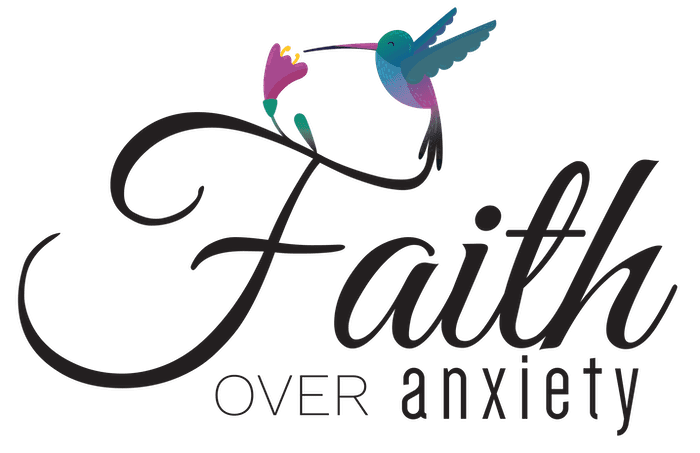When I was thinking about how to share practical information concerning COVID-related anxiety and depression, I realized that I should get some of the professionals’ thoughts.
After all, I’m not a doctor or therapist. I’m just someone who understands the struggle.
So for this interview, I connected with Dr. Renee Davis, Ph.D. from Annapolis, MD, who is featured in Psychology Today, and Dr. Erikka Vaughn, Ph.D. (my friend and former college roommate).
Together, they provided me with excellent insight that I’m sure will be useful for many right now. We’re living in an unusual time, but I think we can be healthy despite what’s going on with the right tools.
So let’s see what they had to say!
Q) How can we curb catastrophic thinking about our health, finances, and relationships?
A) Catastrophic thinking is categorized as a maladaptive thinking pattern. It occurs when we place a disproportionate weight on a circumstance, which then exacerbates feelings of distress.

When it comes to personal matters (i.e., health, finances, relationships) it can be easier to engage in this type of thinking because we hold them closest to us. We tend to be less objective.
The best way to curb this type of thinking would be to challenge it.
What evidence do I have that the thought I am having is true? What evidence do I have that the thought I am having is not true? It’s important to remember that you can validate the feeling while recognizing that the thought is irrational. – Dr. Davis
Q) For anxiety and depression sufferers who can’t afford therapy right now, what’s the best way for them to get help?
A) I would first note that it is important to take into account all of your options. It can be easy to make an automatic assumption that therapy is not affordable. If you have health insurance, ask your insurance company to provide a list of in-network mental health providers and determine what the co-pay would be.
If there is someone that you desire to see who is not in-network, ask your insurance company if they would be willing to create a single-case agreement for your preferred provider. If your insurance does not cover mental health benefits, there are other options.
Some providers have offered pro bono services in response to the global pandemic.
Also, many providers are not opposed to offering a lower rate based on your current income. If you are connected to a church, you can ask if they are willing to offer benevolent funding to cover a certain amount of sessions.
There are also virtual options through platforms like Betterhelp and Talkspace which may provide more affordable rates.
Finally, if you are a student, I would explore what services are offered through your college or university. If all of those options seem inaccessible, I would be sure to remain in contact with your primary care physician about your mental health. It is so important to make sure that you are not suffering alone. -Dr. Davis

A) If someone has insurance, and has not already done so, it would be important to contact the insurance company to identify the nature, scope, out-of-pocket costs, and in-network providers for mental health services to have all of the information to be certain about affordability.
If someone does not have insurance because they recently lost their job, they may be eligible to apply for insurance through state-sponsored health plans. Notably, individuals eligible for Medicaid or Medicaid Managed Care can receive psychotherapy with participating providers with no out-of-pocket cost.
For people who cannot afford therapy due to the benefit structure or not having insurance, it may be helpful to try a community mental health center (which may offer sliding scale pay options), university-based clinics (which may offer free or sliding scale pay options), and private practices that have select spots for clients who pay on a sliding scale.
Further, some organizations cover several free sessions for people seeking out therapy. For example, the Loveland Foundation provides therapy sessions for Black women and girls. Black Men Heal is an organization that provides free therapy for Black men in Philadelphia.
Finally, organizations to support people and families navigating mental health challenges may provide helpful resources. The National Alliance of Mental Health (NAMI) has a helpline to help identify local resources and supports, and the Anxiety and Depression Association of America has a page on finding treatment, as well as an article about seeking less costly therapy options. – Dr. Vaughn
Q) What’s the best way for parents to ease anxiety and stress while taking care of children?
A) One of the beliefs of Trust-Based Relational Intervention therapy is that children need a sense of predictability and control to feel safe.
It’s not necessary or practical to maintain the same level of structure and routine you had pre-pandemic, but there are ways of creating predictability. One could do this by having a weekly activity that works for the family and is easy to maintain (e.g., family movie night, taco Tuesday dinners, walking in the park).
There is also the idea of offering age-appropriate control.
It can be hard to live in a world where you feel like you have little control, but there are ways of placing a greater focus on what can be controlled.
This can be done by offering limited options when possible (e.g., choosing a family movie, choosing what order to complete school assignments, choosing a game to play). – Dr. Davis
Q) How can we all adopt a healthier mindset about life right now?
A) Validation is an important step. You don’t have to pretend that things are “okay” if they are not.
It can feel difficult or awkward, but it’s important to give space for the feelings you carry and acknowledge that they are valid. I would also encourage making efforts to be connected to and engaged in the present moment.
It is easy for our minds to wander in discovery of answers to all the uncertainty that we are faced with, but it rarely makes us feel more secure.
There’s a scripture in the bible that states, “Can any one of you by worrying add a single hour to your life” (Matthew 6:27). Focus on what you do know and what is real in your present moment. -Dr. Davis
Q) How can we defeat feelings of cabin fever?
A) Cabin fever is likely to result when the mind perceives that a change of scenery is needed after a prolonged amount of time in a confined environment.

Simply going outdoors, even for a limited amount of time, can be helpful.
One way to be mindful when outdoors is to engage in the 5-4-3-2-1 grounding exercise. While outside, identify five things you can see, four things you can feel, three things you can hear, two things you can smell, and one thing you can taste.
In the case that going outside is not an option, you may need to change your focus. I would invite you to answer the following question, “what opportunity is now available to me as a result of my limited mobility?” – Dr. Davis
Q) How can we ease feelings of loneliness right now?
A) Stay connected. It sounds like an obvious answer, but I think we often underestimate the intentionality required to stay connected with others.
It’s tempting to disregard all the Zoom invites and physically distant gatherings when we are not in a great mood.
Those are the moments that we have to push to do it anyway.
Emotionally-driven decisions are not often the best for us, but they are often easiest to make. Instead of allowing your feelings to make all the decisions, decide beforehand what you will do.
For example, the next time you get an invite, decide you’re going to say yes. The next time a trusted friend asks, “How are you?” decide you’re going to give them an honest answer. In the case that you feel like people haven’t been reaching out, be the one to reach out. – Dr. Davis
Special thanks go out to Dr. Davis and Dr. Vaughn! Thank you so much for taking the time to educate those of us who need some help right now.
Let me know in the comments below if any of the suggestions from this interview were helpful!
Sincerely,
Alexia





0 Comments